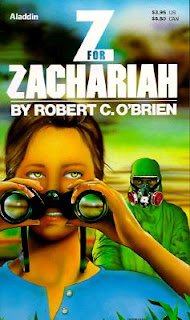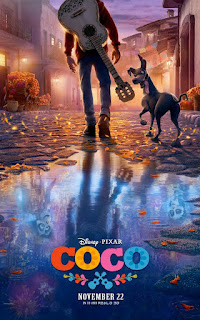Monday Musings: The Little White Horse and Au Revoir, Crazy European Chick
With the musicals post last week, I'm sure some of you were wondering if I was still reading. The answer is yes, and I have two books to talk about today: Elizabeth Goudge's The Little White Horse and Joe Schreiber's Au Revoir, Crazy European Chick.
I picked this one up because I wanted to compare it with the film The Secret of Moonacre. While it lacks some of the book's characterization, the film does a surprising job of keeping the themes of pride and repentance. However, the main story is still vastly different. The quarrels in the book are over much smaller and meaner things (like the use of pink geraniums) than in the film (which uses family feuds and heritage to a greater extent).
I enjoyed some of the humor of the story and the character of Robin a great deal. Robin is like a Puckish version of The Secret Garden's Dickon, and his determination that he'll marry Maria is endearing only because she agrees and their both young enough to see the humor of the statement.
Despite these positive elements, I found the overall style of the book less than enthralling. While drawing on the same literary background as The Secret Garden and the Narnia books, The Little White Horse seems to be less interested in letting its characters be real. Maria's failures hardly feel like real setbacks because the book is set from the beginning on her success. She has the aid of more than a couple of preternaturally intelligent animals, and the goodwill of everyone she meets (with the possible exception of the leader of the Men of the Dark Woods, but even he admires her tenacity).
There are a few moments that give me pause, such as the Parson calling the earth our mother in a hymn to God or the cook entering Maria's room while she sleeps to lay out sweets for her. But there are also moments that almost capture the same magic and beauty of Narnia, such as the times when Maria walks with Wrolf through the night or catches sight of the titular horse.
All in all, The Little White Horse is not a bad read, but I don't think I'll come back to it anytime soon.*
*An earlier version of this review first appeared on my Goodreads page.
Joe Schreiber's first young adult novel, Au Revoir, Crazy European Chick follows young Perry Stormaire on the eventful night he's forced to take Gobi, the foreign exchange student his family is hosting, to the prom. Turns out, she's not really a foreign exchange student. The truth is that Gobi is an assassin with 5 targets to hit in a single night, and Perry is now her driver, alibi, and accomplice . . . whether he wants to be or not.
What follows is a breakneck thrill ride that doesn't shy away from the harsh realities of Gobi's work or the emotional truths Perry is forced to confront in the course of their evening together. Schreiber's prose is tight and his plotting excellent. If there are fewer surprises to be had than one might expect from such a premise, Schreiber's humorous tone and emotional honesty more than make up for the lack.
Gobi is written in the style of the femme fatale but she displays a fully complex range of emotions, some more subtle than others. Perry's stunned reactionary characterization sticks around only long enough to make his growth into an active person believable. The ending has the right emotional beats to make the preceding story feel complete. If you're a fan of wit, thrills, and unevenly matched duos, you'll probably love this book. (Beware some vulgarity, sexual dialogue, and graphic violence stemming from the nature of the book's subject.)
Have you read either of these books? What did you think of them? Let me know in the comments!
The Little White Horse
I picked this one up because I wanted to compare it with the film The Secret of Moonacre. While it lacks some of the book's characterization, the film does a surprising job of keeping the themes of pride and repentance. However, the main story is still vastly different. The quarrels in the book are over much smaller and meaner things (like the use of pink geraniums) than in the film (which uses family feuds and heritage to a greater extent).
I enjoyed some of the humor of the story and the character of Robin a great deal. Robin is like a Puckish version of The Secret Garden's Dickon, and his determination that he'll marry Maria is endearing only because she agrees and their both young enough to see the humor of the statement.
Despite these positive elements, I found the overall style of the book less than enthralling. While drawing on the same literary background as The Secret Garden and the Narnia books, The Little White Horse seems to be less interested in letting its characters be real. Maria's failures hardly feel like real setbacks because the book is set from the beginning on her success. She has the aid of more than a couple of preternaturally intelligent animals, and the goodwill of everyone she meets (with the possible exception of the leader of the Men of the Dark Woods, but even he admires her tenacity).
There are a few moments that give me pause, such as the Parson calling the earth our mother in a hymn to God or the cook entering Maria's room while she sleeps to lay out sweets for her. But there are also moments that almost capture the same magic and beauty of Narnia, such as the times when Maria walks with Wrolf through the night or catches sight of the titular horse.
All in all, The Little White Horse is not a bad read, but I don't think I'll come back to it anytime soon.*
*An earlier version of this review first appeared on my Goodreads page.
Au Revoir, Crazy European Chick
Joe Schreiber's first young adult novel, Au Revoir, Crazy European Chick follows young Perry Stormaire on the eventful night he's forced to take Gobi, the foreign exchange student his family is hosting, to the prom. Turns out, she's not really a foreign exchange student. The truth is that Gobi is an assassin with 5 targets to hit in a single night, and Perry is now her driver, alibi, and accomplice . . . whether he wants to be or not.
What follows is a breakneck thrill ride that doesn't shy away from the harsh realities of Gobi's work or the emotional truths Perry is forced to confront in the course of their evening together. Schreiber's prose is tight and his plotting excellent. If there are fewer surprises to be had than one might expect from such a premise, Schreiber's humorous tone and emotional honesty more than make up for the lack.
Gobi is written in the style of the femme fatale but she displays a fully complex range of emotions, some more subtle than others. Perry's stunned reactionary characterization sticks around only long enough to make his growth into an active person believable. The ending has the right emotional beats to make the preceding story feel complete. If you're a fan of wit, thrills, and unevenly matched duos, you'll probably love this book. (Beware some vulgarity, sexual dialogue, and graphic violence stemming from the nature of the book's subject.)
Have you read either of these books? What did you think of them? Let me know in the comments!





I haven't read either of them but I think i will have to look into it now. They both sound interesting.
ReplyDelete